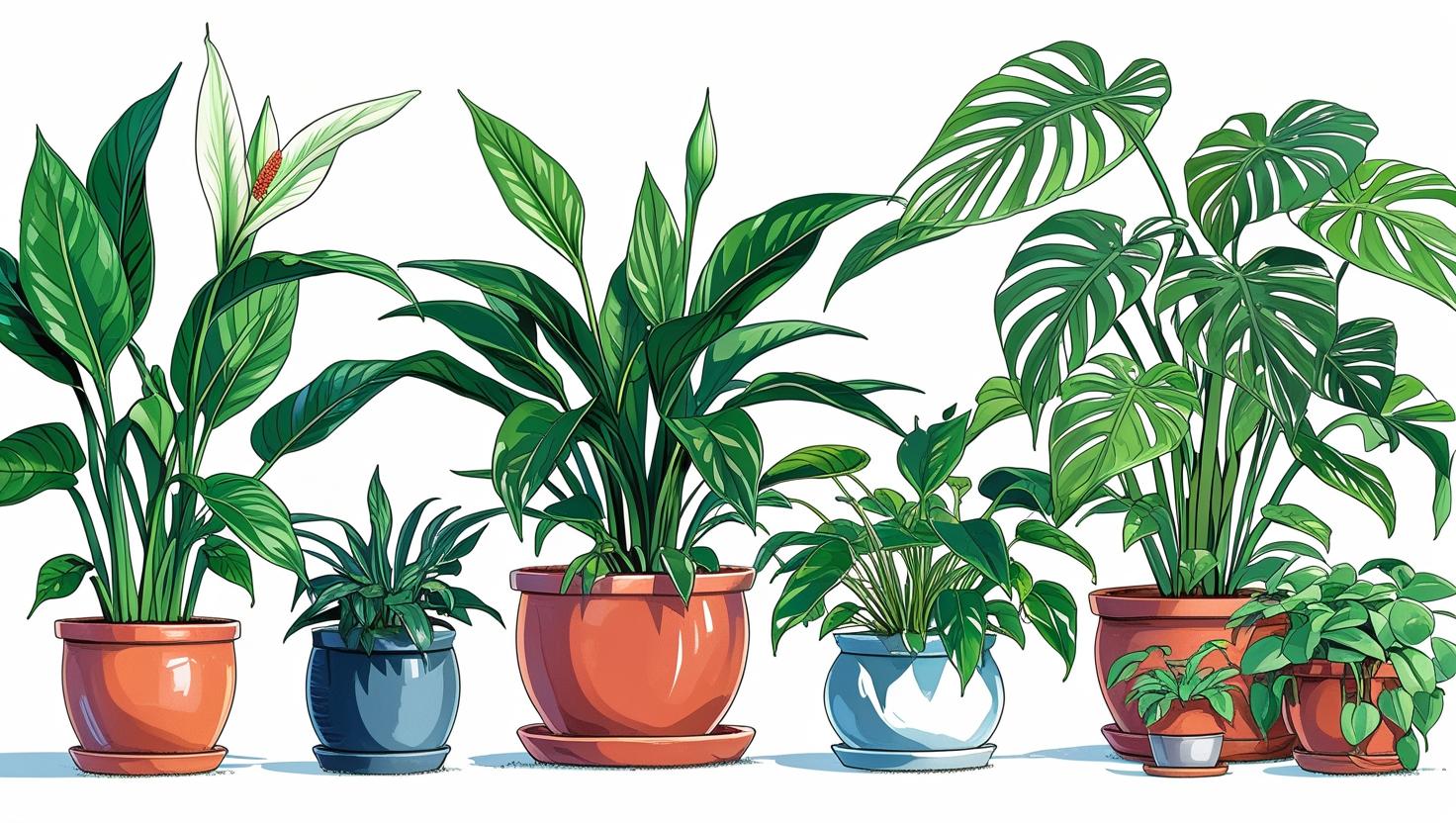Caring for indoor plants while ensuring that pets are safe is essential. Some beautiful plants can be dangerous for curious cats and dogs. By learning which plants are risky, choosing safe plants, and deciding where to place them, you can create a home where everyone thrives.
How to Recognize and Prevent Plant Toxicity in Pets
Some plants found in homes and gardens can cause mild stomach upset, while others have toxins that can lead to much more serious reactions. Unfortunately, pets, especially playful young ones, often chew leaves, dig in pots, or nibble flowers out of curiosity.
Examples of hazardous plants include:Lilies (all varieties): Extremely dangerous for cats; ingestion of leaves or drinking vase water can quickly lead to kidney failure.
- Sago Palm: All parts are poisonous; just a small amount can cause liver damage or even be fatal for dogs and cats.
- Azaleas and Rhododendrons: Chewing even a few leaves can trigger heart problems, vomiting, and weakness.
Oleander: Just one bite can disrupt heart rhythms and cause life-threatening symptoms.
Tulip and Daffodil Bulbs: The bulbs are the most toxic; gnawing on them can lead to drooling, digestive issues, and occasionally serious heart problems.
- Common houseplants like Philodendron, ZZ Plant, Snake Plant, English Ivy, and Aloe Vera: Contain compounds that irritate the mouth, throat, and stomach.
Holiday decorations also require special care; festive plants like mistletoe, holly, and poinsettias can cause stomach upset or, in large quantities, more serious illnesses.
Beautiful, Non-Toxic Plant Options
With careful selection, you can maintain beautiful and worry-free indoor and outdoor gardens. These plants are generally safe for cats and dogs and provide beauty and peace:
Pet-friendly indoor plants:
- Spider Plant
- Boston Fern
- Parlor Palm
- Ponytail Palm
- African Violet
- Calathea
- Phalaenopsis Orchid
- Christmas Cactus
- Peperoni species
Safer outdoor choices:
- Lavender
- Rosemary
- Camellia
- Zinnia
- Snapdragons
While these plants are not toxic, eating large amounts can still cause mild stomach discomfort, so it’s best to discourage chewing regardless of the type.
Tips for a Truly Pet-Proofed Plant Sanctuary Place pots on high shelves, use hanging planters, or dedicate plant corners to rooms inaccessible to pets.
- Opt for sturdy, weighted containers to prevent accidental tipping.
Avoid using chemical fertilizers and pesticides, as residues can endanger animals. Inform visitors and caregivers about your efforts to keep plants safe for pets, especially when plant gifts are involved. Periodically review your plant collection, checking for toxicity before adding anything new to the home. Encourage positive behavior by teaching “leave it” commands and providing alternative chew toys.
Why Thoughtful Choices Matter for Every Resident
A green garden lifts spirits, cleans the air, and is pleasing to the eye. However, for pets, it can also be a temptation. By choosing safe plants and placing them wisely, you can avoid problems and enjoy the company of both plants and pets.
Pet-Safe Plant Habit Checklist, Remove or relocate any questionable species. Fill your garden and home with non-toxic varieties.
- Avoid all chemical plant treatments.
Reassess your collection regularly, especially after holidays or moves.
- Inform everyone in your household—people and pets—about safe boundaries.
Experience Tips
Creating a pet-friendly green oasis isn’t just about aesthetics; it’s a daily expression of care for every member of the household. The plants you choose should bring peace, not worry. With informed choices and mindful habits, you can ensure your home flourishes and remains safe, even for the most curious pets.
If you ever have questions about a specific plant, consult a trusted veterinary source or err on the side of caution, knowing your carefulness is an act of love.
